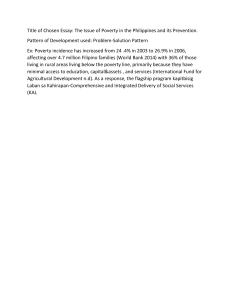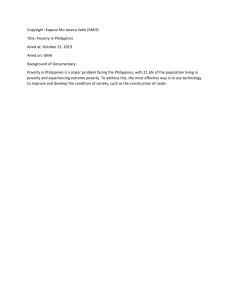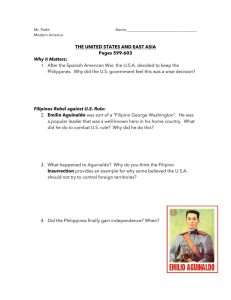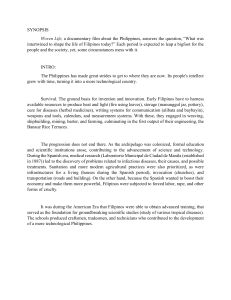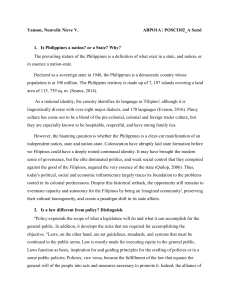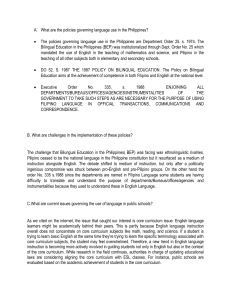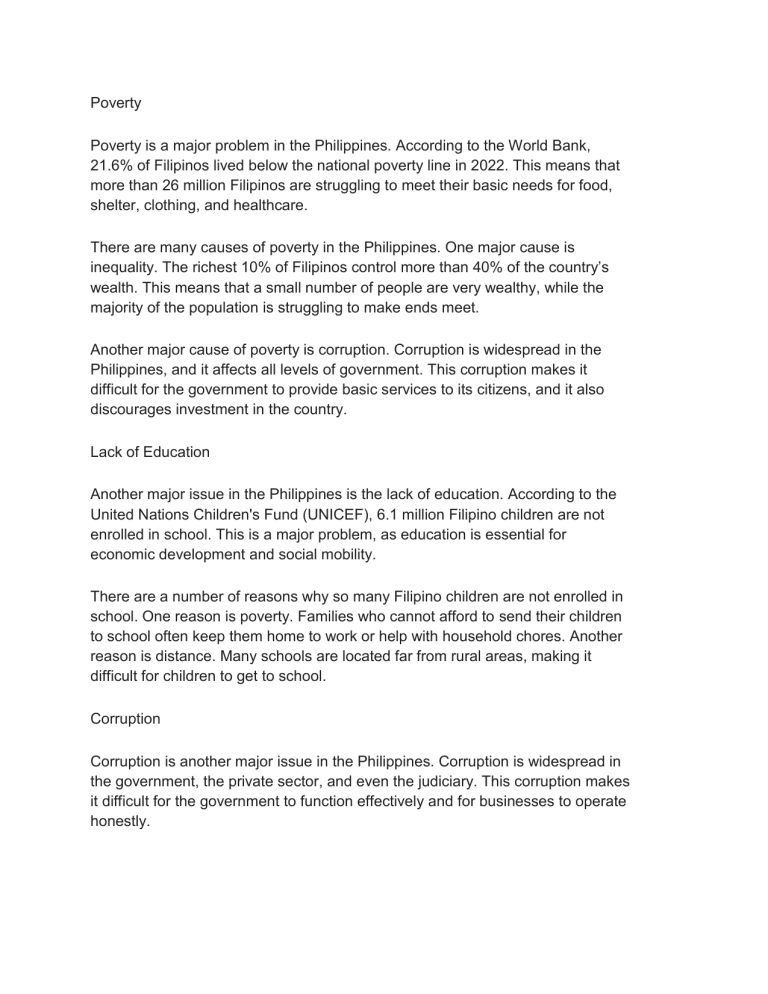
Poverty Poverty is a major problem in the Philippines. According to the World Bank, 21.6% of Filipinos lived below the national poverty line in 2022. This means that more than 26 million Filipinos are struggling to meet their basic needs for food, shelter, clothing, and healthcare. There are many causes of poverty in the Philippines. One major cause is inequality. The richest 10% of Filipinos control more than 40% of the country’s wealth. This means that a small number of people are very wealthy, while the majority of the population is struggling to make ends meet. Another major cause of poverty is corruption. Corruption is widespread in the Philippines, and it affects all levels of government. This corruption makes it difficult for the government to provide basic services to its citizens, and it also discourages investment in the country. Lack of Education Another major issue in the Philippines is the lack of education. According to the United Nations Children's Fund (UNICEF), 6.1 million Filipino children are not enrolled in school. This is a major problem, as education is essential for economic development and social mobility. There are a number of reasons why so many Filipino children are not enrolled in school. One reason is poverty. Families who cannot afford to send their children to school often keep them home to work or help with household chores. Another reason is distance. Many schools are located far from rural areas, making it difficult for children to get to school. Corruption Corruption is another major issue in the Philippines. Corruption is widespread in the government, the private sector, and even the judiciary. This corruption makes it difficult for the government to function effectively and for businesses to operate honestly. Corruption also has a negative impact on the lives of ordinary Filipinos. It leads to higher prices for goods and services, and it makes it difficult for people to get basic services like healthcare and education. Conclusion The Philippines is a country with a bright future. However, in order to achieve its full potential, it needs to address the contemporary issues of poverty, lack of education, and corruption. These issues are complex and there are no easy solutions. However, with the cooperation of the government, the private sector, and civil society, it is possible to make progress on these issues and create a better future for all Filipinos. In addition to the three issues discussed in this essay, there are a number of other contemporary issues that need to be addressed in the Philippines. These include climate change, environmental degradation, and human rights abuses. The government, the private sector, and civil society all have a role to play in addressing these issues. By working together, we can create a better future for the Philippines.

